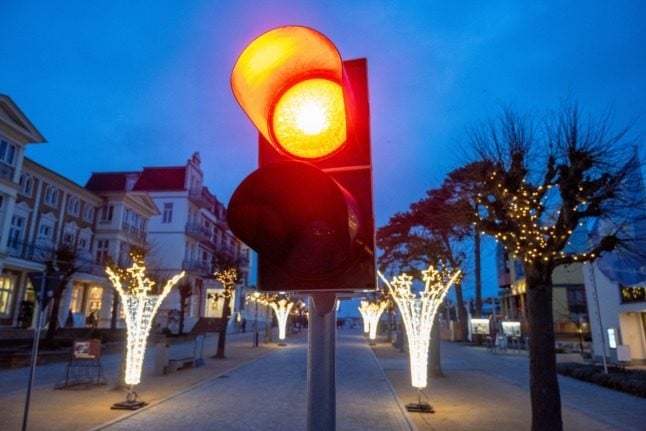Although the Omicron variant has so far been spreading more slowly in Germany than in other countries, such as the UK, experts believe that this is likely to change quickly.
According to the Robert Koch Institute (RKI), the nationwide 7-day incidence of new Covid infections rose slightly again on Monday to 316 cases per 100,000 people, up from the previous day of 315.4.
Though this number has dropped significantly from the previous week, when the incidence was at 402.9, the numbers are expected to shoot up again if Omicron takes hold.
Covid summit on Tuesday
On Tuesday, the federal and state governments will hold a special summit to discuss the Covid situation and further action in light of the spread of the Omicron variant. It is expected that new Covid restrictions will be decided upon in this meeting,
In anticipation of the summit, the German government’s Covid Expert Council called for action “in the coming days”. In a statement, the panel expressed the need for “well-planned and well-communicated contact restrictions”.
READ ALSO: German government advisory panel urges fresh Covid measures to fight Omicron
The panel’s scientists have concluded that booster vaccinations alone won’t be able to hold back the Omicron wave and that contact restrictions will be necessary.
Carsten Watzl, Secretary General of the German Society for Immunology, reiterated the need for new contact restrictions, telling the Augsburger Allgemeine newspaper: “We will have to bring the incidences that are shooting up with Omicron down very sharply, and we will not succeed in doing that now, in this fourth wave, with booster vaccinations, but only by bringing back distancing and contact restrictions”.
READ ALSO: Germany must prepare for ‘massive’ Omicron wave, warns Health Minister
No lockdown before Christmas
As the federal and state governments are firstly meeting on Tuesday, December 21st to discuss further restrictions, it is unlikely that lockdown measures will be brought before December 25th.
On Sunday, German Health Minister Karl Lauterbach ruled out a lockdown before Christmas, telling the news a German broadcaster: “No, a lockdown – like in the Netherlands, before Christmas – we will not have that here”.
READ ALSO: Hold Christmas parties in Germany online to stave off Omicron, says RKI
Green Party health politician Janosch Dahmen also stated that a lockdown will not come into force until after the holidays.
“Given the extremely high transmissibility of Omicron, we will probably not be able to avoid a lockdown after Christmas. One possible scenario would be a well-planned lockdown in early January,” he said.
However, he also urged people to restrict Christmas celebrations to small family circles and to keep taking tests.
North Rhine-Westphalia’s state premier and chairman of the Conference of Minister Presidents, Hendrik Wüst (CDU), sees the prospect of tighter contact restrictions coming in around the turn of the year.
He told ARD television that he does not consider further restrictions to be necessary as early as Christmas, but that “we won’t be able to have the big New Year’s Eve bash”.



 Please whitelist us to continue reading.
Please whitelist us to continue reading.
Member comments